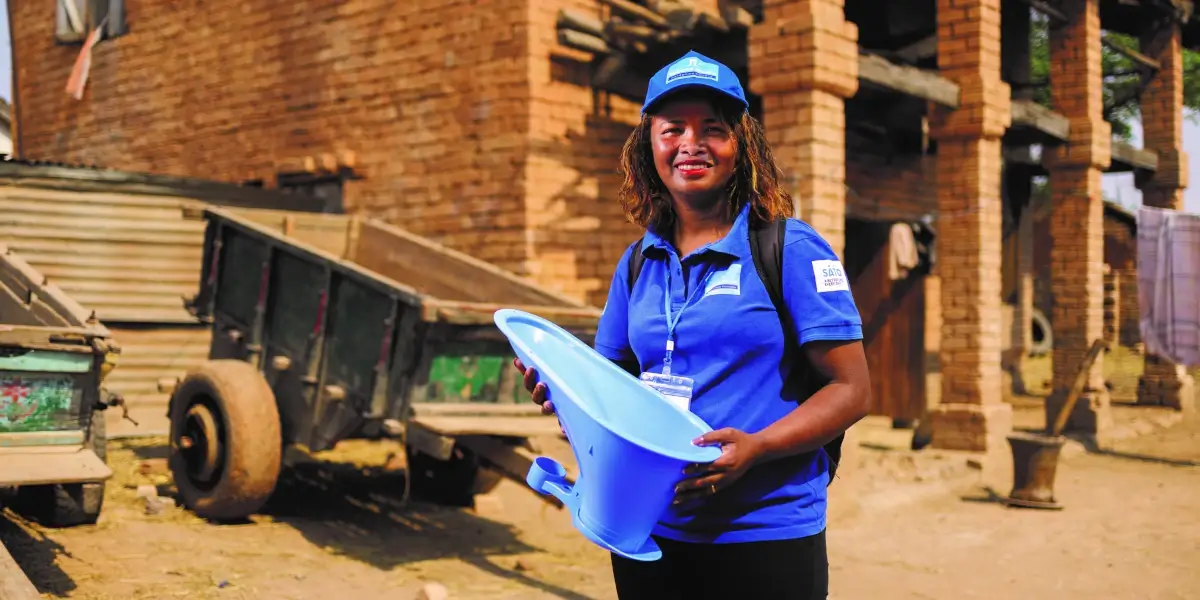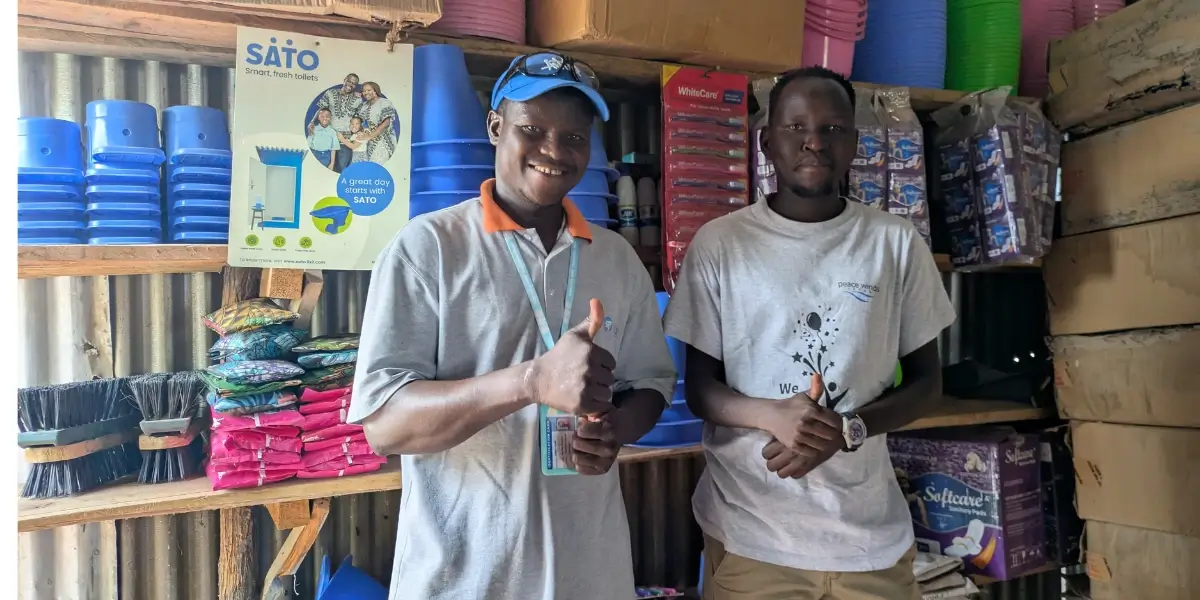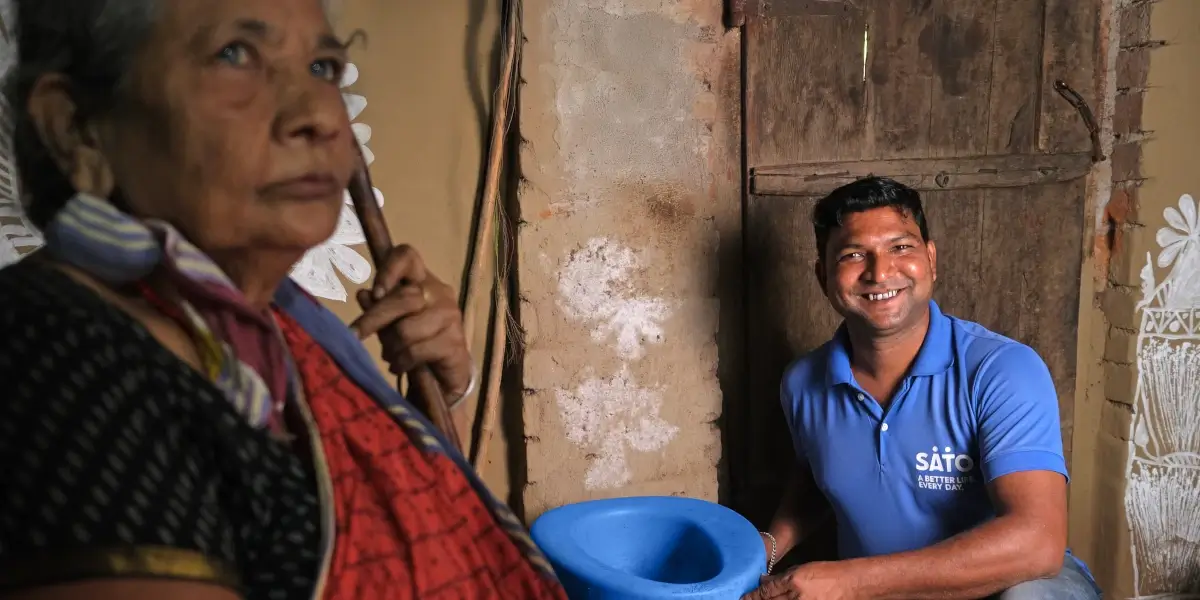
Partnership in Practice: What We Learned from the USAID–LIXIL Collaboration

How LIXIL is building on PBL’s foundation to drive the future of market-based sanitation
By Genevieve Kelly and Erin McCusker, SATO, part of LIXIL
As we reflect on the evolution of the Partnership for Better Living (PBL), a five-year program launched by LIXIL and USAID to enhance access to improved sanitation and hygiene solutions, we are proud of the tangible progress we made reaching new markets in addition to the many lessons learned for future public-private partnerships (PPPs).
Stemming from a MOU signed by LIXIL and USAID in October 2020, the Partnership for Better Living (PBL) set out to try something new: a unique public-private partnership model without precedent in previous USAID-funded WASH programming with a private sector supplier as the prime recipient. Seeking to work alongside the broad WASH project portfolio and implementing partners, the cooperative agreement asked how we can accelerate sustainable, market-based approaches in sanitation and hygiene.
PBL reached 3.6 million people by improving access to essential sanitation and hygiene products through its partners in the 3 active years of the five-year partnership, exceeding its original goal of reaching 2 million people. PBL accelerated SATO’s impact at the market-level by:
- Accelerating the launch of new markets including in Madagascar, Liberia, and Senegal; we conducted market research, recruited local partners, and now have dedicated SATO staff to support their continued development.
- Establishing agreements with 3 new distributors, two in Senegal and one in Madagascar, forging partnerships that will ensure steady supply for years to come.
- Providing molds for new or updated SATO products to local manufacturers, resulting in over 600,000 sanitation or hygiene solutions sold.
- Funding the field testing of four new product prototypes – including our recently-launched pit liner – as well as providing product training to partners in Guatemala, breaking into Latin America a new region for SATO.
In addition to accelerating the launch of new markets, PBL sought to improve the broader ecosystem for public-private partnerships (PPPs), having identified PPPs as a key vehicle for sustainable impact. By uniting the strengths of government agencies, NGOs, and a private sector leader like LIXIL, we not only created a robust platform for innovation but also gained invaluable insights into how cross-sector collaborations can be optimized. For example, through the implementation of PBL, we:
- Learned that many of our NGO and government partners were initially unfamiliar with the intricacies of our global supply chain. Although this presented a challenge, it ultimately served as a catalyst for us to develop new resources, such as the Supply Chain Video and the forthcoming partner toolkit, which has been instrumental in increasing transparency, enhancing coordination, and building trust across all levels of our partnership.
- Produced case studies to capture lessons learned and inform future partnerships, such as how Tetra Tech, through the USAID-funded Uganda Sanitation and Health Activity (USHA), successfully collaborated with LIXIL to drive sanitation demand amongst urban youth. USHA Case Study
- Leveraged the power of dialogue such as through our in-person event in Washington, DC “How can we partner smarter, faster?” to bring together stakeholders from the public, private, and NGO sectors to identify new ways to collaborate and to engage senior leadership to raise visibility on the challenges and opportunities of partnering together.
While our current chapter with USAID concludes, the legacy of the Partnership for Better Living endures in the lives we have improved and the markets we have transformed. Our achievements are a foundation on which we will continue to build, inspiring future projects, partnerships and innovations. In the chapters to come in development and public-private partnerships, we not only stand ready as a partner, but call for all new funders and partners to invite the private sector to the table to increase transparency and accelerate sustainability in our shared vision to empower people everywhere to live a better life, every day.
Thank you to everyone—the PBL team, partners, distributors, customers—who contributed to this project, including: ADEMAS, Alternativ, Archipel&Co, Constellation Group, FLUSH, Inviso Group, Population Services International (PSI), Spark Publicity, and Water and Sanitation for Urban Populations (WSUP) as partners. In particular, we are grateful for the vision, commitment, and persistence of the former USAID team including Ella Lazarte, Oliver Subasinghe, Carmelita Francois, Portia Persley, Nancy Eslick, Jeff Goldberg, Nga Kim Nguyen, Lisa Schechtman, Jesse Shapiro, Brian Banks, and many others.
LIXIL’s five-year cooperative agreement, the Partnership for Better Living (PBL), was terminated after three years as part of the broad restructuring and funding changes in USAID in February 2025. To learn more about PBL’s achievements, and to take advantage of the multitude of resources that were developed during the project, you can visit the Partnership for Better Living page, here: Partnership for Better Living
WANT TO STAY UP TO DATE?
Subscribe to our newsletter to stay on top of the latest news, views, and stories from on the ground.
The easiest way to do this is to sign-up for our LinkedIn newsletter here. We'll then send you a bi-monthly letter from our Leader, Erin McCusker.

Similar articles
While global in scope our stories are local at heart.



 Copyright © LIXIL 2026
Copyright © LIXIL 2026